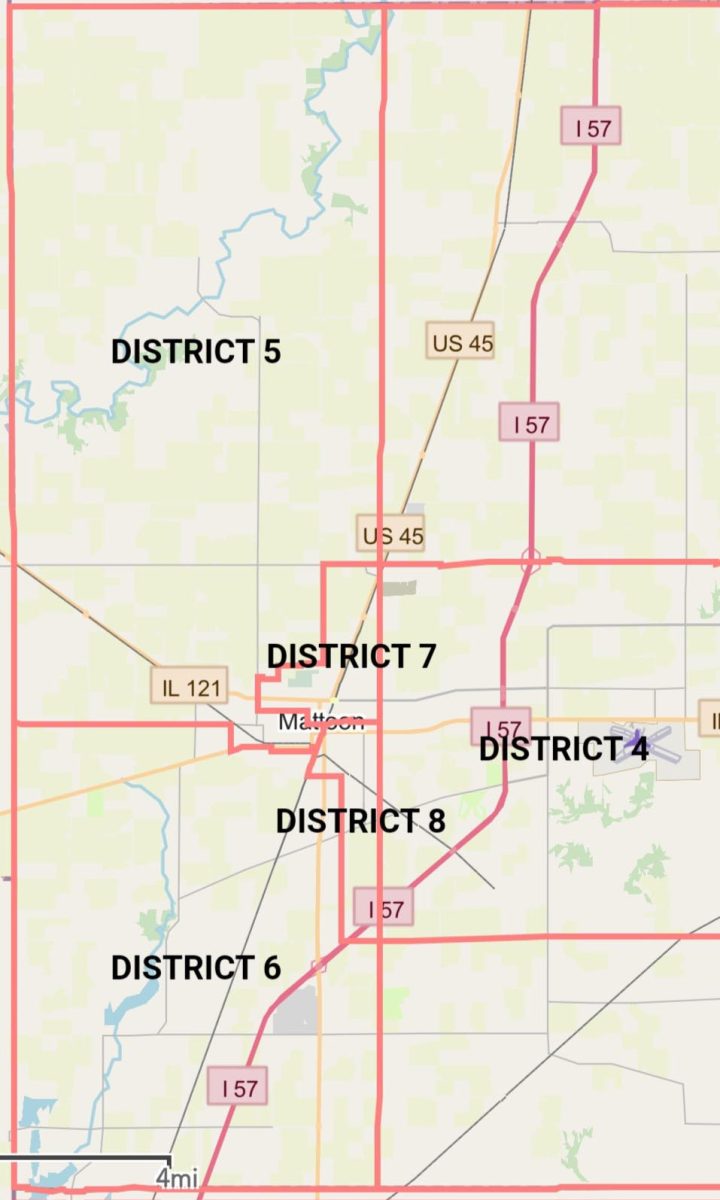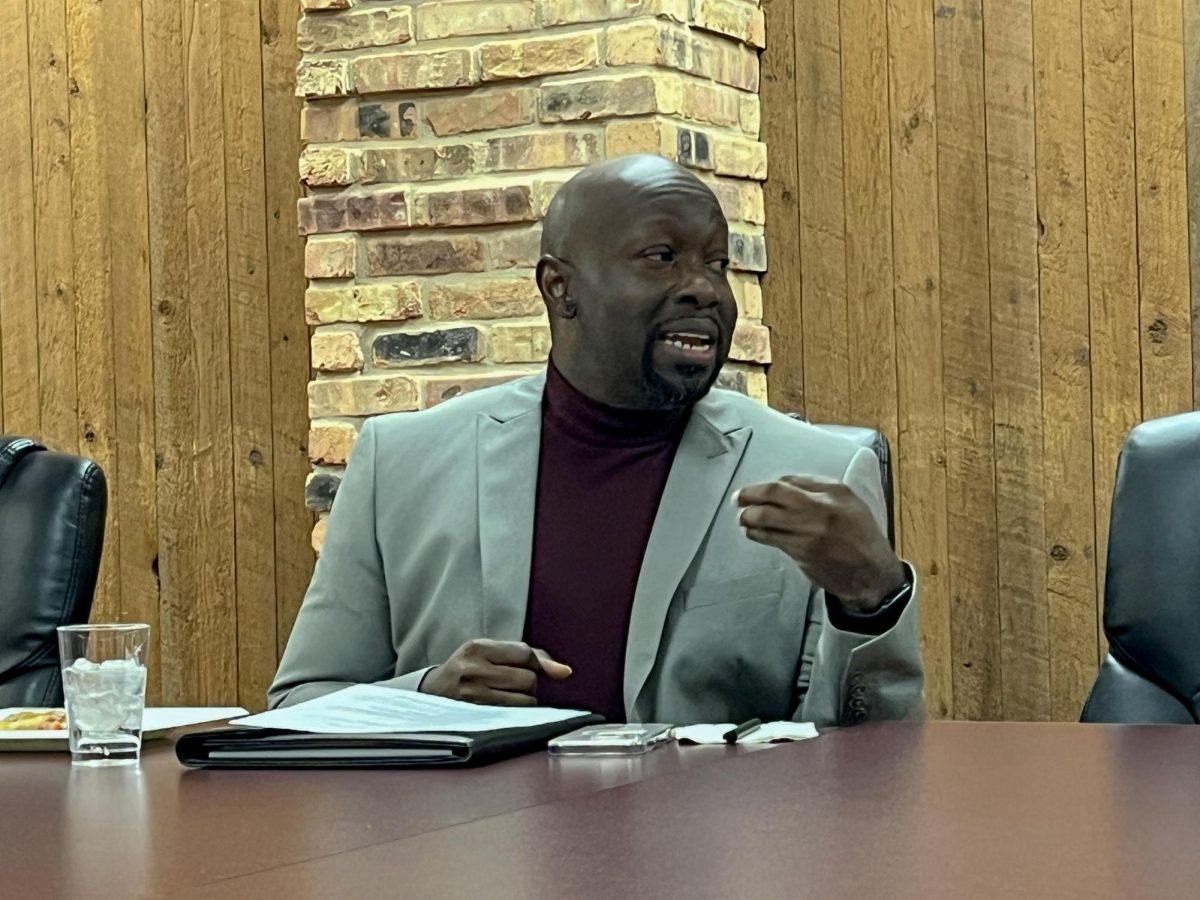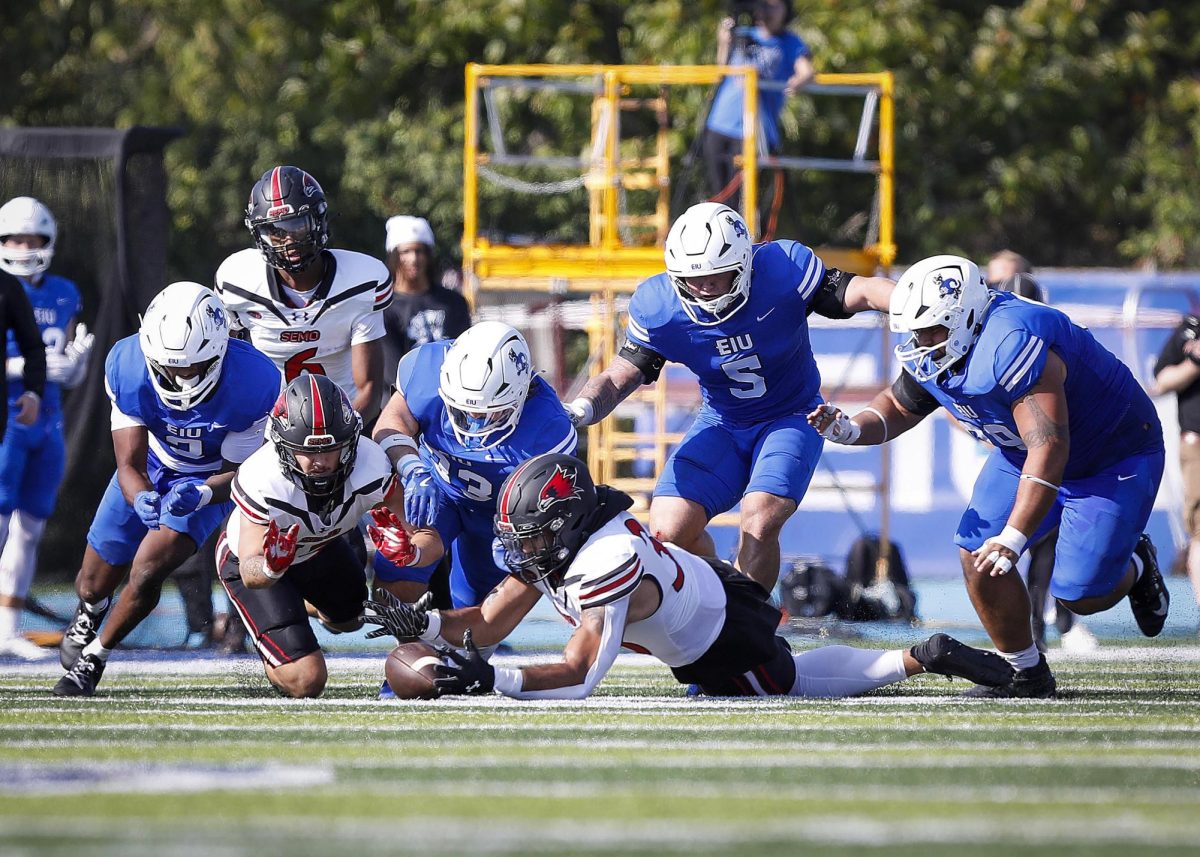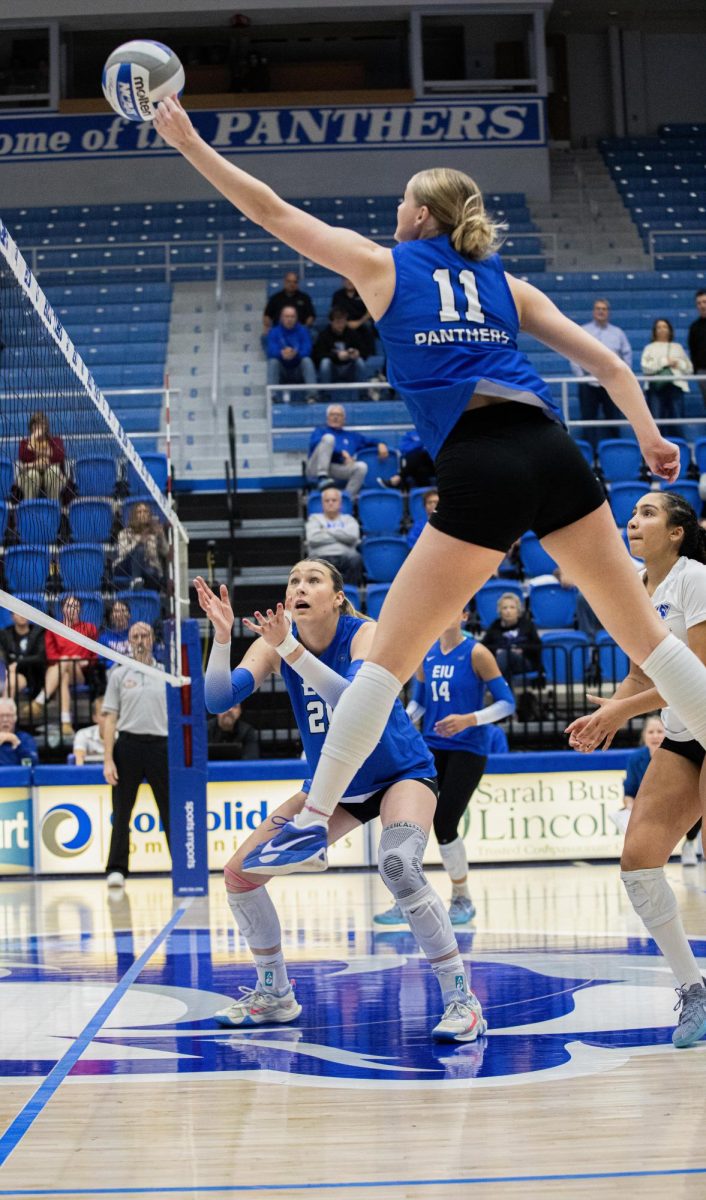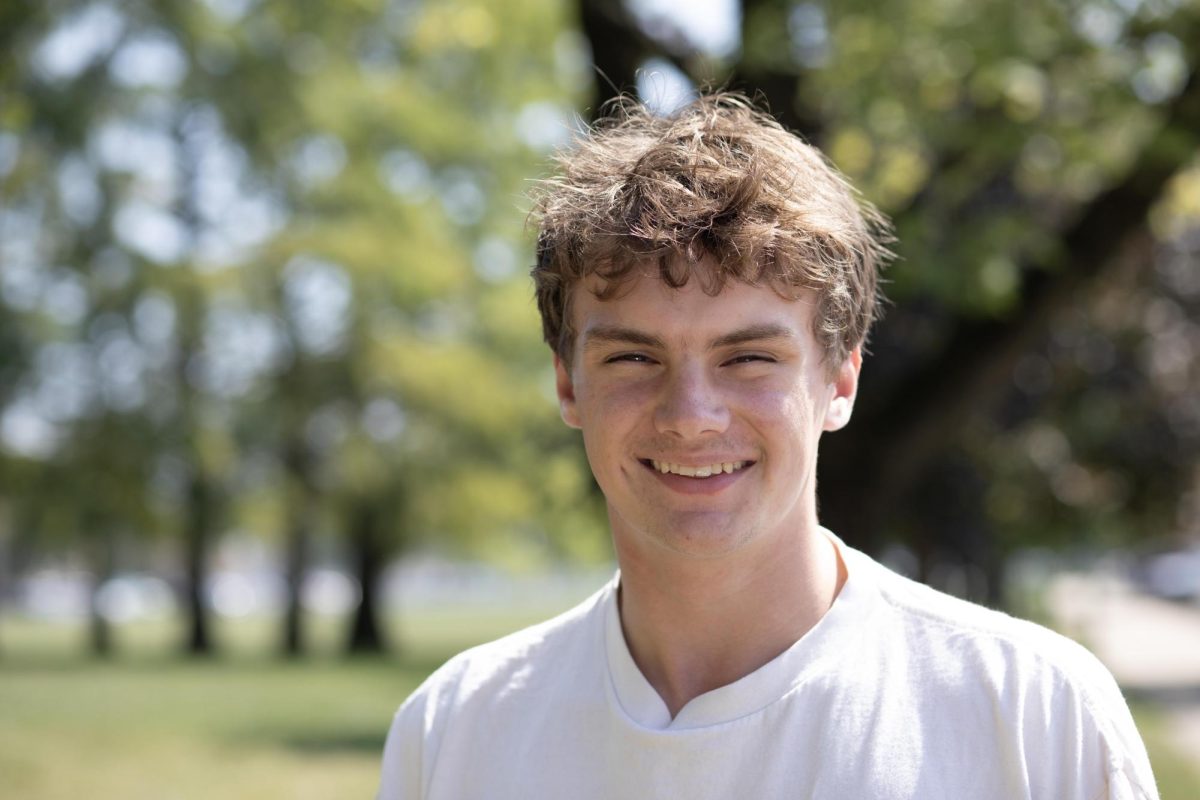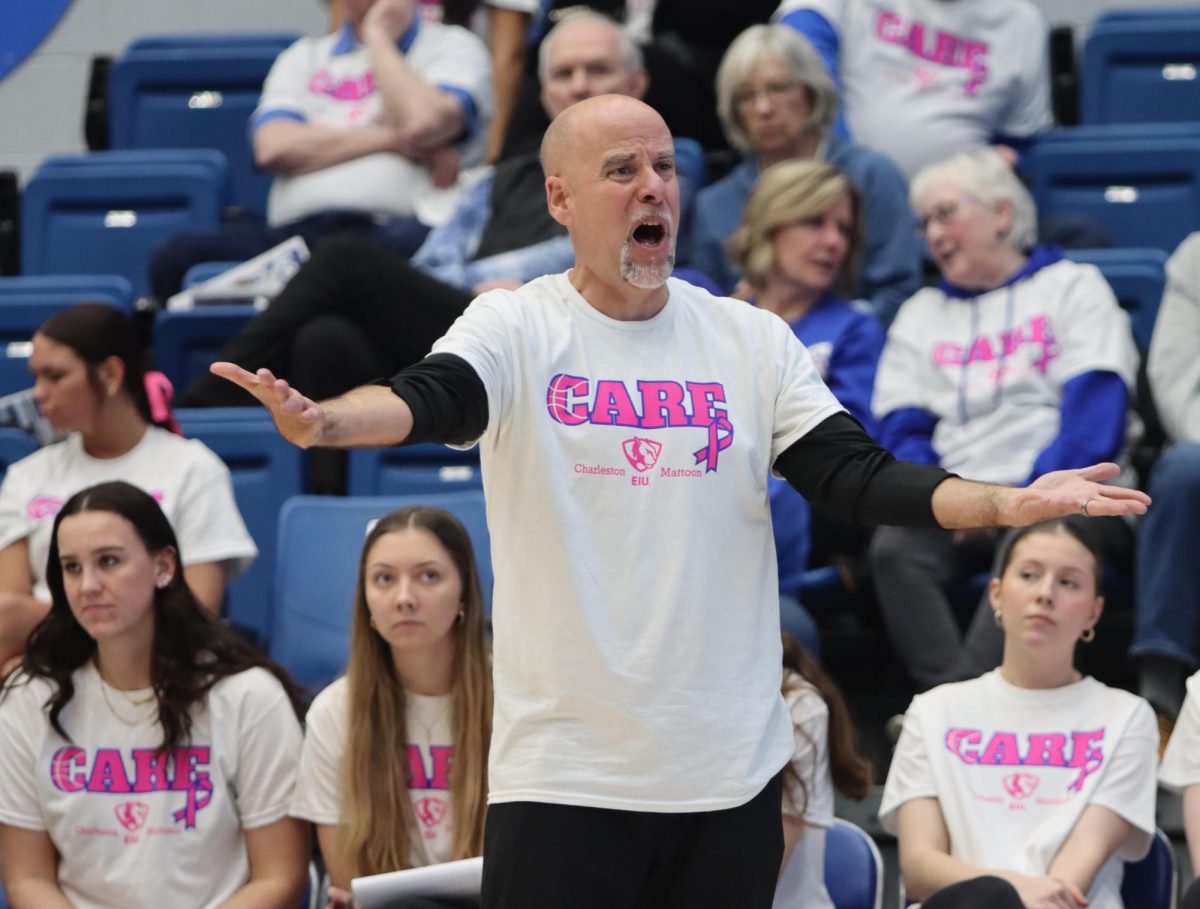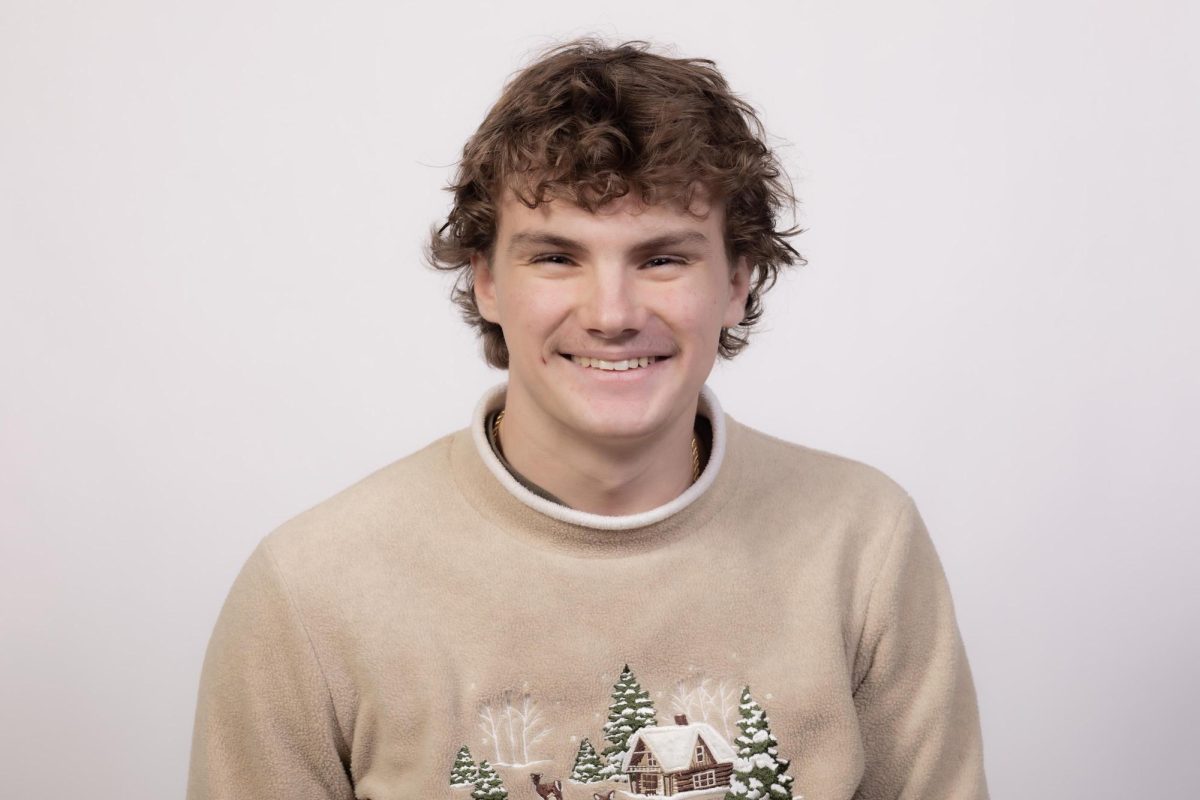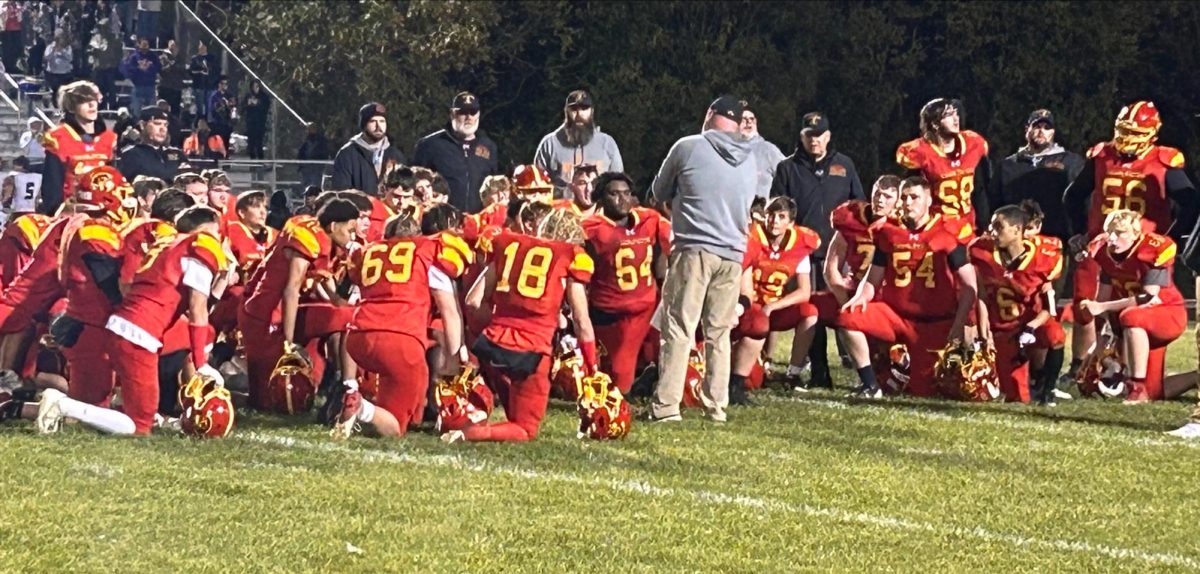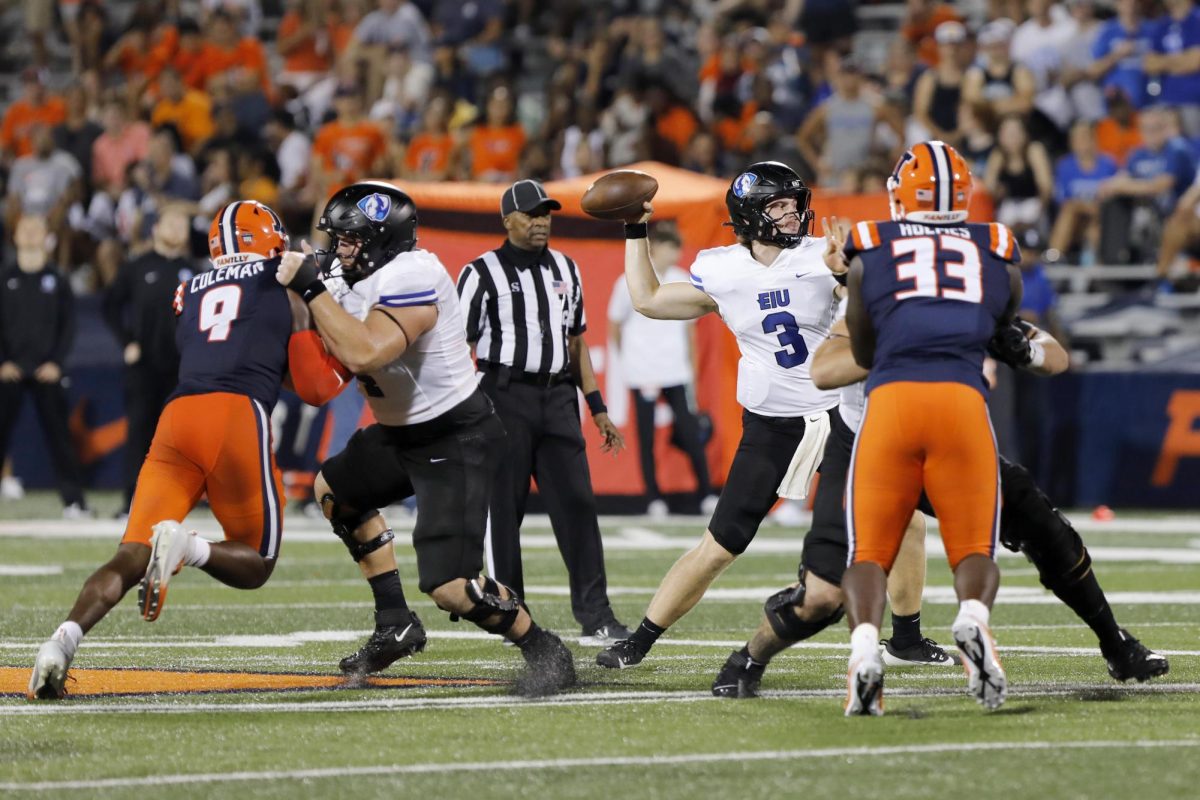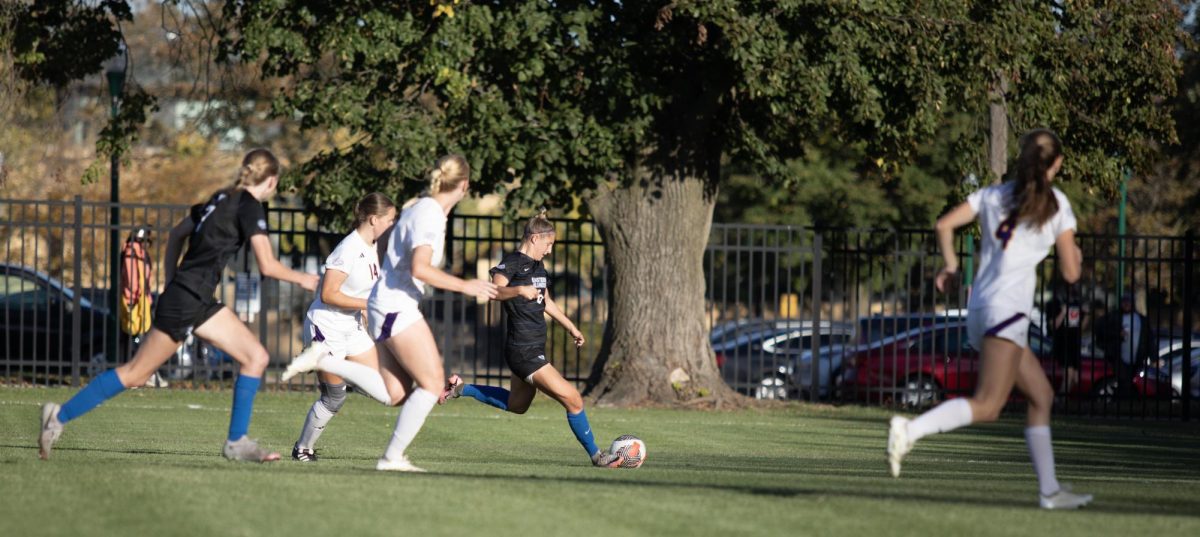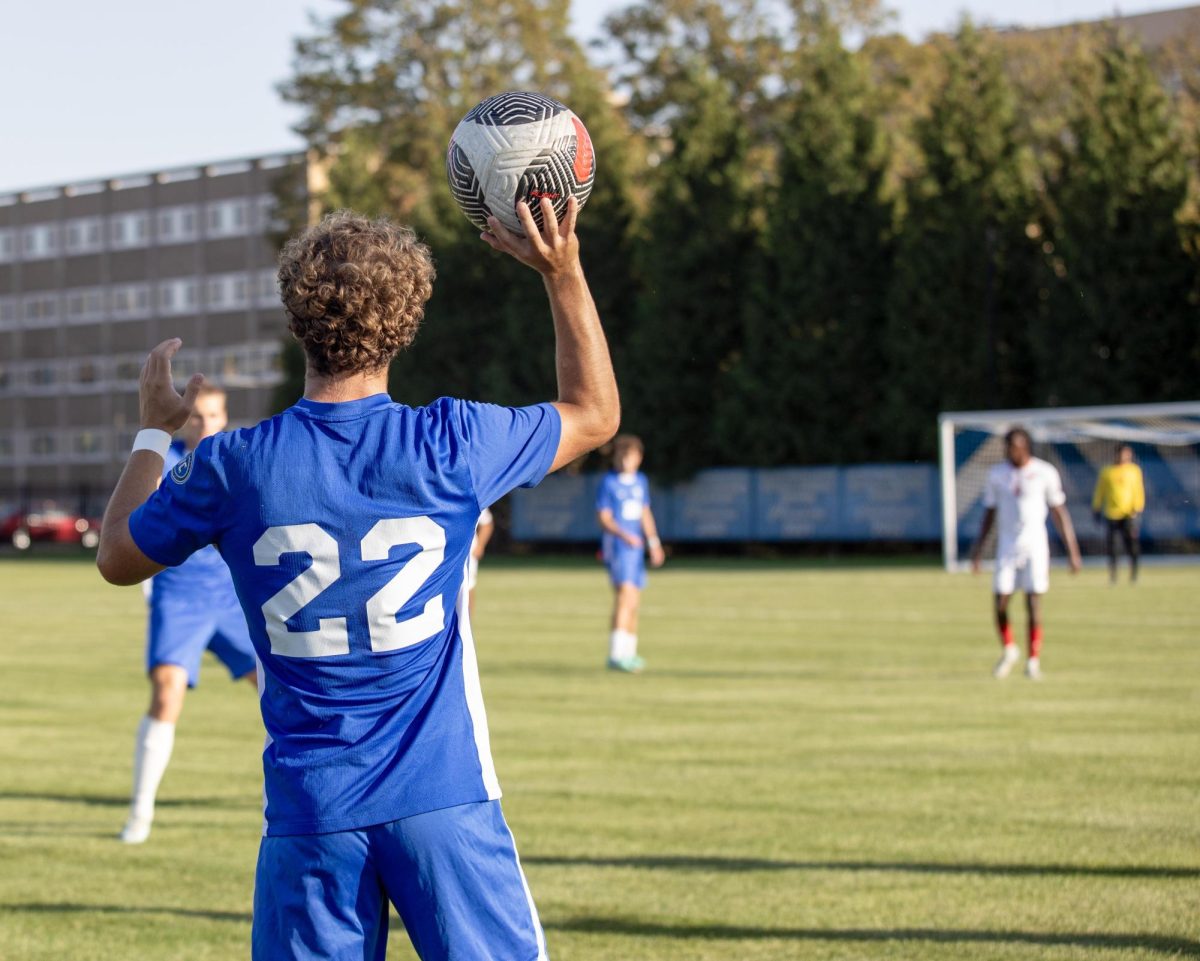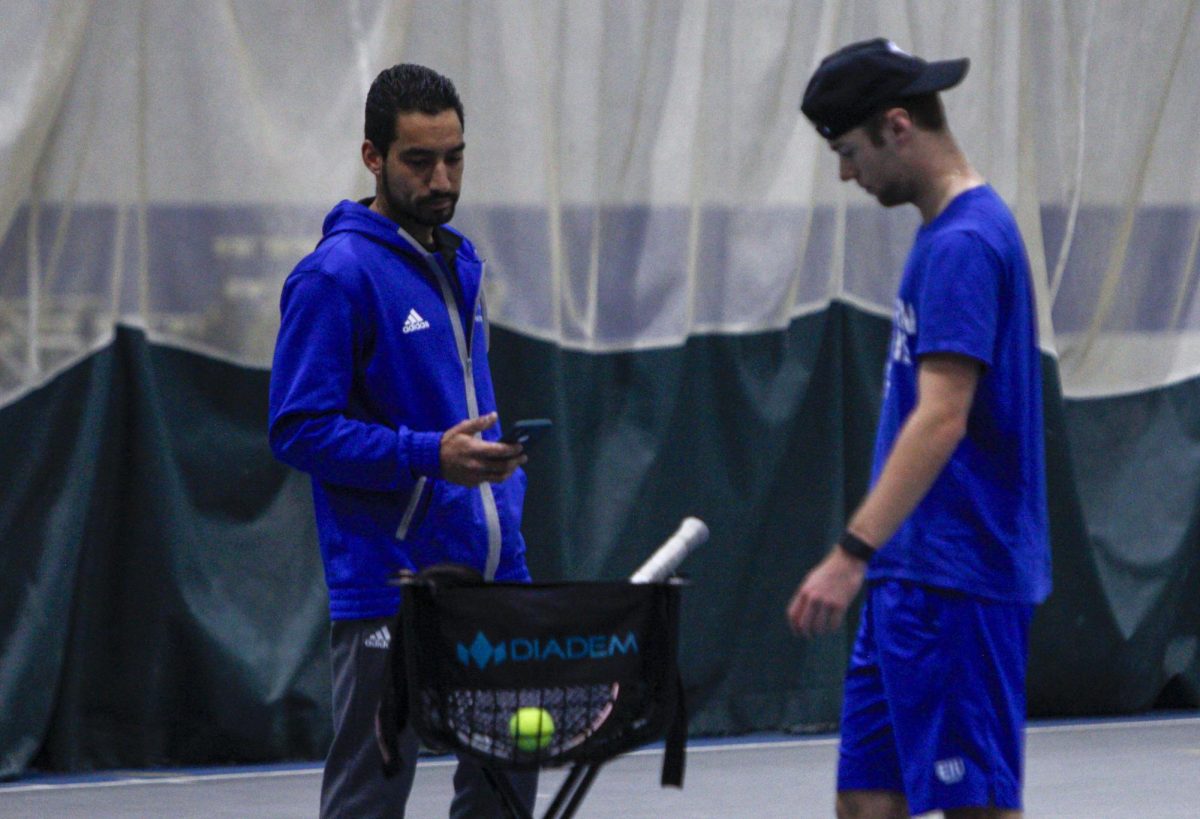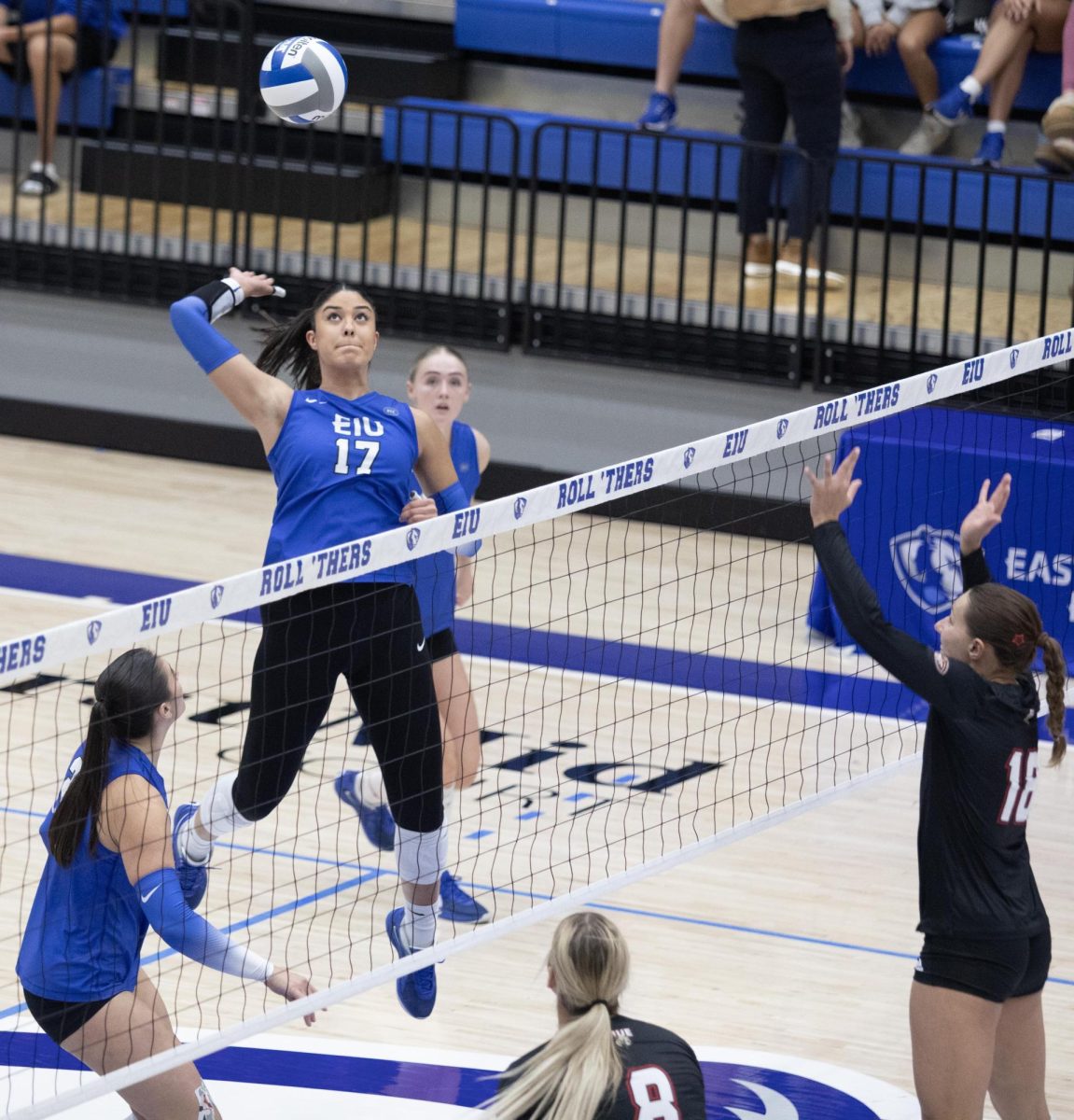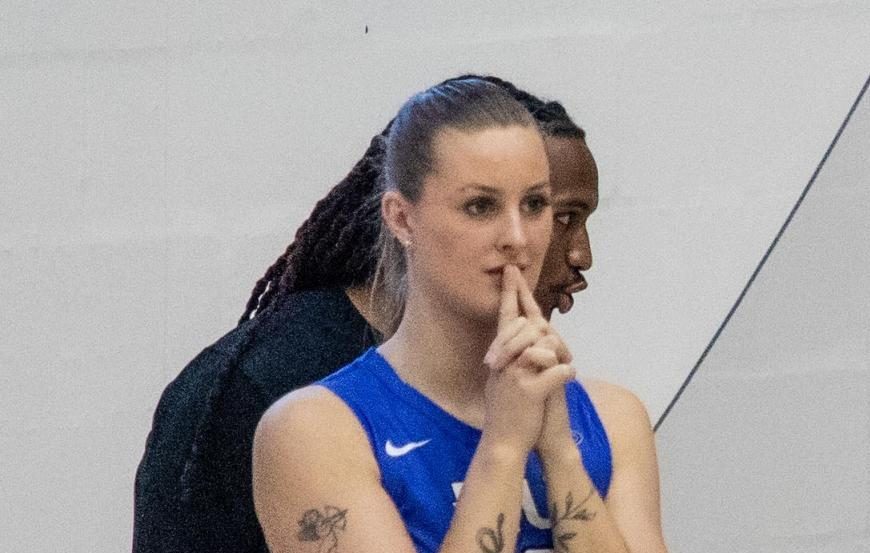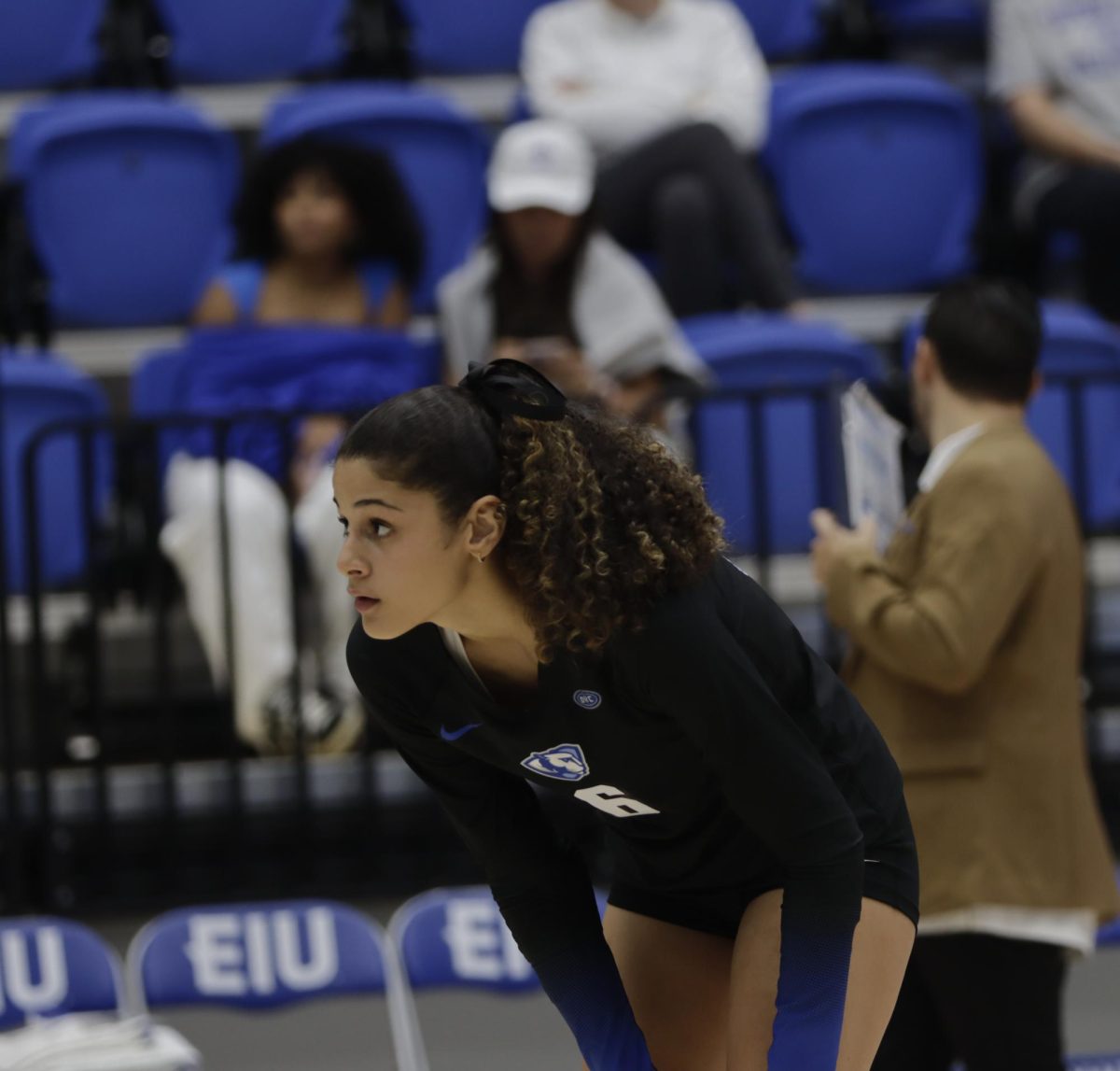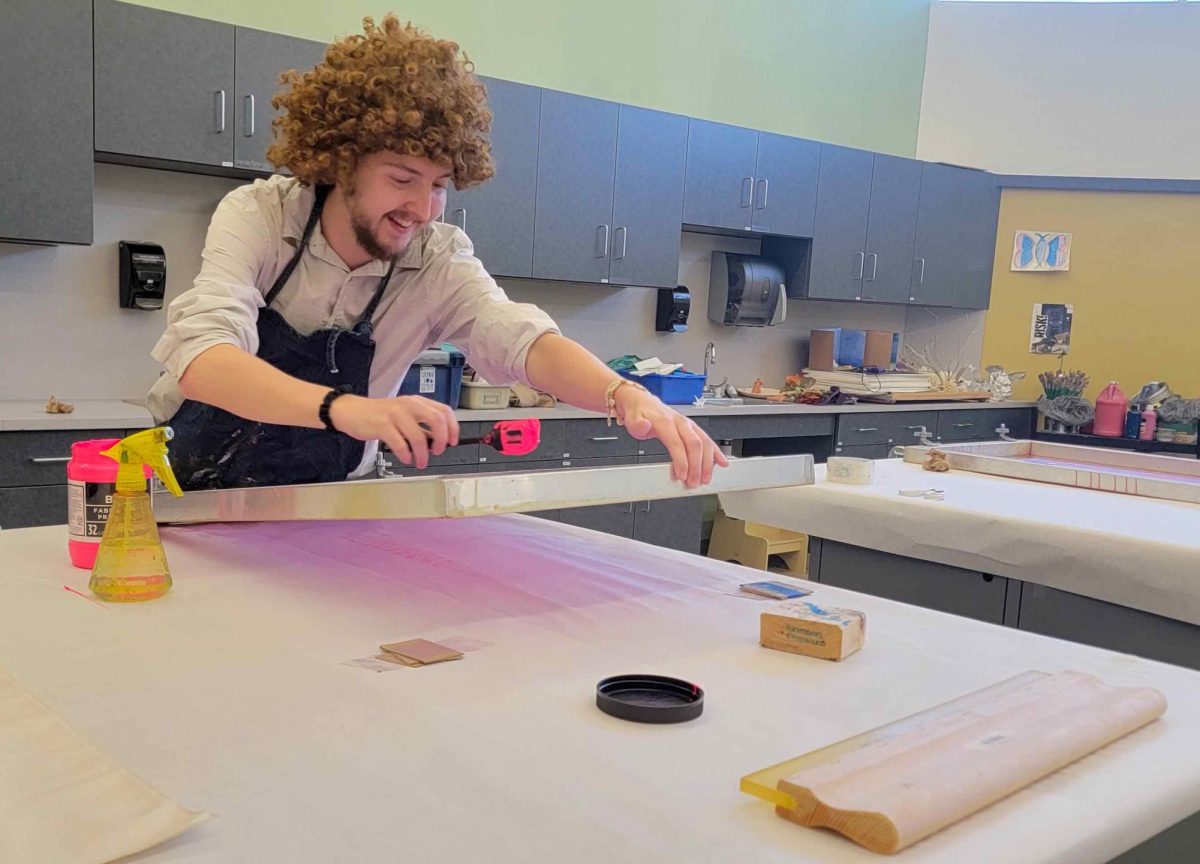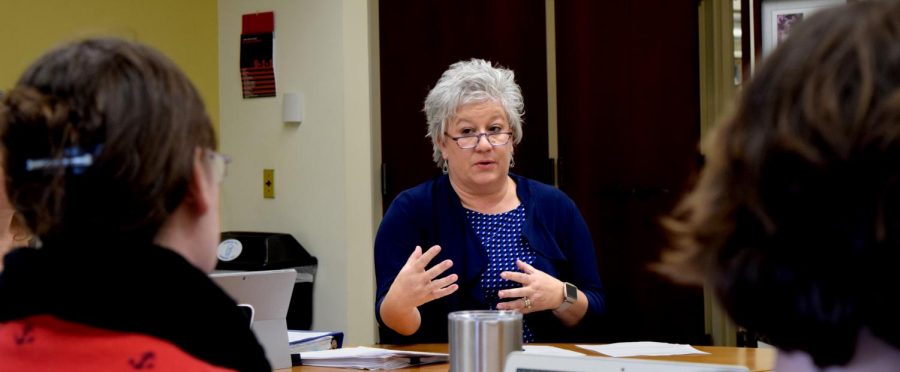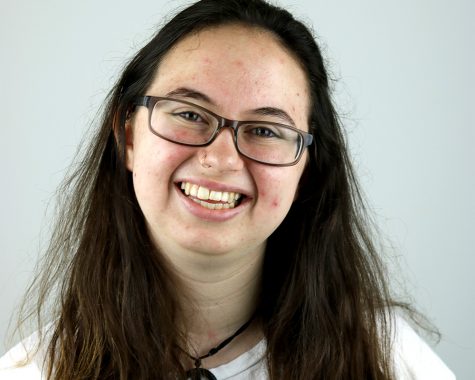CAA approves pre-physical therapy option, others
Julie Dietz is the chair and the academic adviser for the department of health promotion. She prestented two revised major options as well as a revised course to the Council on Academic Affairs Thursday.
March 1, 2018
Changes to majors and degree options for the kinesiology and sports studies, as well as health promotion departments, were approved at the Council for Academic Affairs meeting on Thursday.
Mark Kattenbraker, the chair of the kinesiology and sports studies department, presented one new course, two new options, one revised option and two revised majors.
The new course is called KSS 4274, Pre-Internship and Career Development in Kinesiology and Sports Studies. It was proposed to fill gaps Kattenbraker said were in the current internship process for kinesiology and sports sciences.
The two majors, exercise science and sports management, and the revised therapeutic recreation option, which complements the recreation administration major, were updated to reflect the addition of this new required course.
The two new degree options are related to the exercise science major and include the pre-physical therapy option and the pre-occupational therapy option.
Kattenbraker said the options, especially the addition of the pre-physical therapy option, use faculty and courses already present at Eastern and will be a good marketing tool for potential students.
“Within our exercise science program now, and you read the description there in the rational, we easily have about 70 students who have at least expressed (wanting) to go to (physical therapy) school,” Kattenbraker said.
Currently, the kinesiology and sports studies adviser does the best she can to get students the prerequisites they generally need to get into such a program, he said.
“It kind of works, but we also kind of want something solid in place, (a program) we can work with,” Kattenbraker said.
Julie Dietz, chair and academic adviser of the health promotion department, presented a revised course similar to the newly-added pre-internship course for the kinesiology and sports studies department, as well as two option revisions.
Dietz’s revised options took into account the increased amount of prior learning assessment credits allowed, with the health promotion program now accepting a semester total of 12 hours.
Prior learning assessments allow non-traditional students, whose work experience and professional development may exceed a course’s requirements, to get credit for courses they believe they have already completed the learning goals of.
The process requires students wishing to get credit hours for their work not put on a transcript to argue their case with a résumé and portfolio, both of which are reviewed by the department chair and faculty before being accepted.
Dietz said prior learning assessments are a great way to accommodate non-traditional students and their past achievements.
Catalog changes were also made, one to accept associate’s degrees from out-of-state universities, and one to create a GPA appeal process for intercollegiate activities.
Stacey Ruholl, chair of the CAA, and also a member of the University Naming Committee, said the committee has voted against the Faculty Senate proposal to change the names of both Lincoln and Douglas halls to Lincoln and Douglas Debate Hall East and West.
A draft for possible shifts for different on-campus committees is also being shared with faculty and staff and is in the process of a campus-wide review.
Brooke Schwartz can be reached at 581-2812 or at bsschwartz@eiu.edu.


